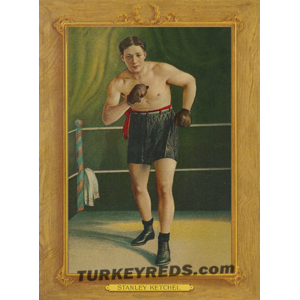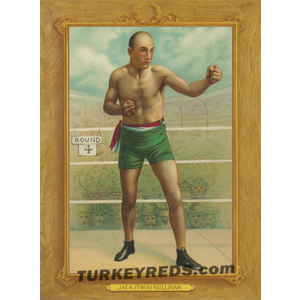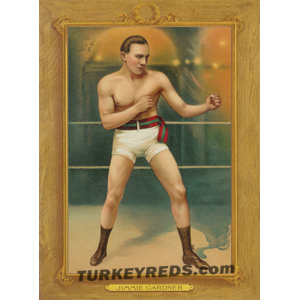Description
High resolution image available
Stanley Ketchel
Born: September 14, 1886 Grand Rapids, Michigan
Died: October 15, 1910 (aged 24) Springfield, Missouri
Height: 5’9″
Weight: 142-170 lbs
Division: Middleweight
Record:
Total fights: 64
Wins: 51
Wins by KO: 48
Losses: 4
Draws: 4
No Contest: 1
Biography:
Stanisław Kiecal (September 14, 1886 – October 15, 1910), better known in the boxingworld as Stanley Ketchel, was a Polish American professional boxer who became one of the greatest World Middleweight Champions in history. He was nicknamed “The Michigan Assassin.” He was murdered at a ranch in Conway, Missouri, at the age of 24.
He was born in 1886 in Grand Rapids, Michigan, to Tomasz Kiecal and Julia Kiecal (née Olbinska), whose family immigrated from the village of Sulmierzyce in Piotrków Trybunalski, Guberniya, in modern-day central Poland.
Ketchel is rated by many boxing historians as the best Middleweight ever; He punched out heavyweights as easily as middleweights; Stanley put tremendous pressure on his opponents and was an aggressive attacker who threw dangerous knockout punches from any angle with either hand. He avoided school, instead falling in with a gang of street kids and often getting into fist fights. At twelve years old, he ran away from home, becoming a child hobo. He lived as tough as he fought. Ketchel hopped a westward train when he was 15. Legend holds that he ran away from home. His brother, Arthur, always insisted he received their mother’s blessing. Ketchel landed in Montana at a time when the six-shooter and horse still ruled. He loved Butte and gained work as a bar bouncer. When the bar owner noticed Ketchel’s natural acumen for fighting, he started putting the teen-ager on his weekly boxing shows.
Ketchel’s first official fight was in 1903, in Butte. He knocked out Kid Tracy in the first round. As a teenager he lived in Butte, Montana, where he found employment first as a hotel bellhop and then as a bouncer. This profession obviously led to many scraps that established his reputation as the best fist fighter in town. Soon enough sixteen-year-old Stanley was performing in backroom boxing matches with older locals for twenty dollars a week. He began traveling throughout Montana, offering to take on any man brave enough to face him. Between 1903 and 1906, he lost just twice in thirty-nine contests and, in 1907, moved to California, where he knew most of boxing’s big names and big fights waited for him.
Ketchel’s 1909 battle with Jack Johnson has been called by many a modern-day “David and Goliath”. In the 12th round, Ketchel floored Johnson with a right hand. Johnson got up and knocked out Ketchel with a right uppercut.
Ketchel and Johnson were rumored to have been friends and to have gone gambling, as well as hit the brothels, together; they shared a love for women. Ketchel and Johnson planned to fight together. Because Ketchel was shorter than Johnson, he wore long coats to conceal the platform shoes he had worn to make him look taller at a publicity event. They set up a script for their fight to stretch it to 20 rounds, as a 20-round fight would guarantee boxing fans would pay to go to local theaters to watch the replay of the fight. After 12 rounds, Ketchel swung a surprise punch that knocked Johnson down. Regaining his feet, Jack Johnson knocked out Ketchel with a swift combination to Ketchel’s head and jaw. Ketchel did not wake up for many minutes and some of his teeth were knocked out by the blow, some embedded in Johnson’s glove.
The internationally famous middleweight boxing champion fell to a single .22-caliber bullet that he might not have seen. It tore through his side, into a lung, from a shooter driven by jealousy, or rage, or personal profit, or some combination.
More info:
https://en.wikipedia.org/wiki/Stanley_Ketchel
http://www.mlive.com/boxing/index.ssf/2010/10/profile_boxing_great_stanley_k.html
http://www.cyberboxingzone.com/boxing/ketchel.htm








